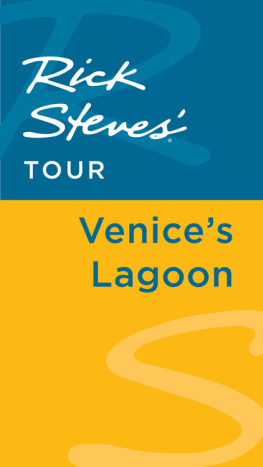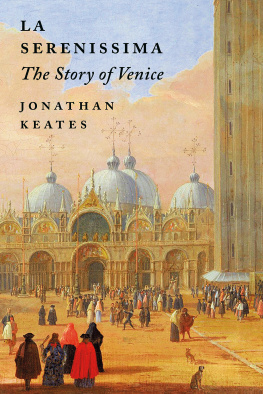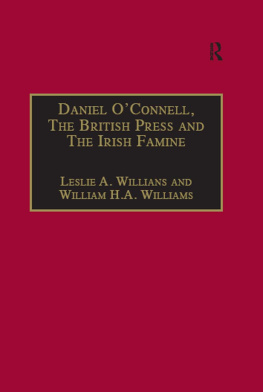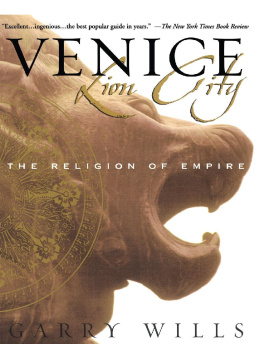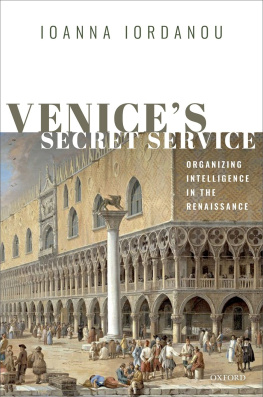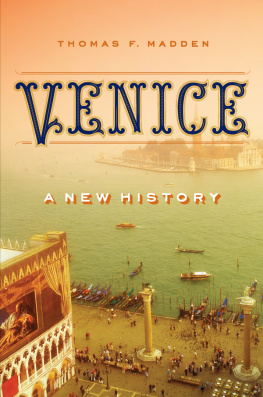
Men of Empire
The Johns Hopkins University Studies in Historical and Political Science127th Series (2009)1. Monique OConnell,
Men of Empire: Power and Negotiationin Venices Maritime State2. Morag Martin,
Selling Beauty: Cosmetics, Commerce,and French Society, 17501830
Men of Empirep o w e r a n d n e g o t i at i o ni n v e n i c e s m a r i t i m es tat e
Monique OConnellThe Johns Hopkins University Press
Baltimore
This book was brought to publication with the generous assistance of theGladys Krieble Delmas Foundation.2009 The Johns Hopkins University PressAll rights reserved. Published 2009Printed in the United States of America on acid-free paper2 4 6 8 9 7 5 3 1The Johns Hopkins University Press2715 North Charles StreetBaltimore, Maryland 21218-4363www.press.jhu.eduLibrary of Congress Cataloging-in-Publication DataOConnell, Monique, 1974Men of empire : power and negotiation in Venices maritimestate / Monique OConnell.p.cm. (The Johns Hopkins University studies in historicaland political science; 127th ser., no. 1)Includes bibliographical references and index.ISBN 978-0-8018-9145-8 (hardcover : alk. paper)1. Venice (Italy)History. 2. Venice (Italy)ColoniesAdministration.3. Venice (Italy)Territories and possessionsPolitics and government.4. Justice, Administration ofItalyVeniceTerritories and possessions.I. Title.DG677.85.O25 2009945.31107dc222008031489A catalog record for this book is available from the British Library.
Special discounts are available for bulk purchases of this book. For more information,please contact Special Sales at 410-516-6936 or specialsales@press.jhu.edu.The Johns Hopkins University Press uses environmentally friendly book materials,including recycled text paper that is composed of at least 30 percent post-consumerwaste, whenever possible. All of our book papers are acid-free, and our jacketsand covers are printed on paper with recycled content.
c o n t e n t s
This page intentionally left blank
During the course of this project, I have accumulated debts of gratitude to nu-merous institutions and individuals, and it is a pleasure to now acknowledgetheir help and support. I spent many years in the Venetian state archives andother libraries, research time which was made possible by a number of generousgrants. The Jacob K. Javits Foundation and the Gladys Krieble Delmas Founda-tion offered me over two years of residence in Venice. Subsequent funds from theStanford University Introduction to the Humanities research leave program,Wake Forest Universitys William C. Archie Fund for Faculty Excellence, the Na-tional Endowment for the Humanities, and the Renaissance Society of Americaallowed further trips to archives and libraries in the United Kingdom, Italy, Croa-tia, and Greece. I would not have been able to complete this book without theconcentrated writing time offered by a year-long research leave from Wake For-est University and a fellowship at Harvard Universitys Villa I Tatti Center for Re-naissance Studies, an ideal environment for study and contemplation.I have been very fortunate to be surrounded by a wonderful community ofscholars and friends in both Italy and America. At the Archivio di Stato in Venice,Michela dal Borgo and Claudia Salmini have opened many doors. AnthonyMolho, James Grubb, Dennis Romano, Benjamin Arbel, John Law, Sally McKee,Holly Hurlburt, Josko Belamaric, and Deborah Howard have all asked greatquestions both in and out of the Venetian archives. Many people have providedrich and valuable commentary on this work. Stanley Chojnacki, Paula Findlen,Tamara Griggs, Robert Lerner, Michael Hughes, Holly Hurlburt, Carl Petry, andStephen Vella all read drafts of the work in its various stages and offered helpfulsuggestions; Eric Dursteler read and commented on a penultimate draft of themanuscript. Edward Muir has been an ideal mentor, helping me find sources offunding and providing a constant source of constructive criticism, encourage-ment, and advice throughout this projects long gestation, and I am grateful forhis exacting and insightful remarks on several drafts of the work.
viiiAcknowledgmentsSpecial thanks are due to my Venetian family, Feruccio, Margit, Francesca,and Caroline De Stefani. Their friendship and hospitality has made Venice seemlike a second home to me, and they have cheerfully helped me solve many of thedifficulties and crises I faced while living abroad. I am profoundly grateful tothem for their many kindnesses.I have had the opportunity to present pieces of this work at numerous confer-ences and seminars and received rich and stimulating commentary that havemuch improved the manuscript. The feedback I received at the Folger Shake-speare Library Seminar Artifice and Authenticity: The Ambiguities of EarlyModern Venice, in spring 2003 and at the Venice International University semi-nar Trade, Colonies, and Intercultural Contacts in the Venetian World in spring2004 was particularly valuable and I thank all the participants and organizers. Mycolleagues in the history department at Wake Forest University have also offeredstimulating reflections, and students in my courses over the years have asked anumber of very direct questions that have consistently forced me to clarify myideas and their expression.I must thank my coauthors on the
Rulers of Venice database project, BenjaminKohl and Andrea Mozzato. Andrea has solved countless knotty paleography andlinguistic problems for me with unstinting patience, and Ben has been the mostsupportive senior colleague imaginable. Thanks are due as well to the interlibraryloan staffs at Northwestern, Stanford, and Wake Forest universities, who over thepast decade have procured a remarkable number of obscure books and articles. Iam also grateful to Mary Pendergraft and Robert Ulery, Jr., of the classics depart-ment at Wake Forest University for their cheerful willingness to untangle Latinpuzzles for me. Henry Y. K. Tom has asked pointed and constructively criticalquestions as he guided this book to completion with extraordinary patience, andthe manuscript is much improved because of his involvement. Bill Nelson pro-duced the maps for the book.Final thanks go to my parents, Jeanne and Edward OConnell, who have sup-ported me in countless ways over the years. This study is dedicated to them notonly for their financial and moral support throughout my education but forteaching me to follow my own path and their unfailing belief in me as I did.
The geographical range of this book is wide; this presents difficulties with me-dieval and modern place names as well as with personal names. Furthermore, dur-ing the period under consideration, the names of cities and territories oftenchanged along with political boundaries. In order to preserve some sort of con-sistency, I have used the Italian versions of place names, with the exception ofplaces generally familiar to an Anglophone audience (e.g., Athens, Cyprus). I havenoted variant place names at appropriate points in the text and in appendix A.Much of the data on officeholding in this book comes from the database
Rulersof Venice, ed. Andrea Mozzato, Benjamin G. Kohl, and Monique OConnell. Atthe time this manuscript went to the publisher, the database was in a final edit-ing stage at the Renaissance Society of America but not yet available to the pub-lic, and I have used a beta version of that database in preparing this volume. Thedatabase standardizes the spelling of personal names in order to make comput-erized searching possible, and I have therefore used the Italian versions of personalnames when referring to Venetian patricians. This standardization imposes a reg-ularity on individual names that did not exist at the time, where, for example, thesame individual might be referred to in different documents as Zuan, Zuanne,Giovanni, Iohannes, or Iannis. In the text, I have tried to strike a balance betweenclarity and consistency and the linguistic diversity of the eastern Mediterranean.The Venetian year began in March; I have modernized all dates.
Next page



